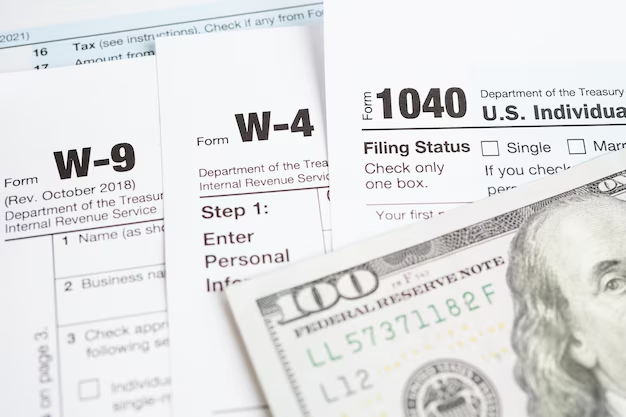Navigating New York State Income Tax Rates: What You Need to Know
For residents and those earning income in New York State, understanding the state income tax rates is essential. Whether you're a full-time resident, a part-year resident, or a non-resident with income from New York sources, staying informed about how these taxes work will empower you to make better financial decisions.
Understanding New York State Income Tax
The New York State income tax is progressive, meaning the rate you pay increases as your income rises. This tax system applies to all personal earnings, including wages, salaries, and business income derived from the state.
Progressive Tax Bracket Breakdown
In New York, tax rates range across multiple brackets:
- Low Income: Lower tax rates apply to those with incomes at the lower end of the scale. This structure intends to lessen the financial burden on lower-income individuals.
- Middle Income: As income rises, the tax rate gradually increases. Middle-income earners are subjected to moderate tax rates.
- High Income: Higher earners pay a substantially larger percentage of their income in taxes.
This tiered system aims to achieve a fair distribution where those with higher earning capacities contribute more to state revenue.
Filing Requirements
New Yorkers must file a state tax return if they meet specific income thresholds. This includes all residents with an adjusted gross income above certain limits, as well as non-residents and part-year residents with income sourced from New York.
Special Considerations in New York Taxation
Deductions and Credits
New York offers various deductions and credits that can reduce your taxable income. Some key ones include:
- Standard Deduction: A fixed deduction amount that varies based on filing status.
- Itemized Deductions: Residents can itemize deductions for specific expenses like mortgage interest, taxes paid, and medical expenses.
- Tax Credits: Various credits are available, such as the Child and Dependent Care Credit and the Earned Income Credit, which can directly reduce your tax owed.
Local Taxes
In addition to state income tax, some localities in New York, like New York City and Yonkers, impose their own tax rates. These local taxes can significantly impact overall tax obligations, especially in high-tax areas.
Navigating Non-Residency and Part-Year Residency
For those who are not full-year residents, understanding how New York taxes part-year residency or non-residency is crucial.
Part-Year Residents
If you lived in New York for part of the year, your income may be subject to tax for that period. Part-year residents report all sources of income for the portion of the year they lived in the state, and New York taxes the income based on the full year's tax bracket, prorated for time spent in the state.
Non-Residents
Non-residents earning income from New York sources, such as property rents or business operations, must file a non-resident return. This filing pertains to any New York-source income, and the state taxes it at rates proportional to the state-residents’ income tax levels.
How to Calculate and Pay Your New York State Income Tax
Steps to Calculate Your Tax Obligation
Determine Filing Status: Establish whether you are filing as a single individual, married couple, or head of household. This affects tax rates and deductions.
Calculate Adjusted Gross Income (AGI): This is your total income minus specific adjustments, serving as the baseline for further deductions and credits.
Apply Deductions and Credits: Subtract the standard or itemized deductions from your AGI, and apply any qualifying tax credits to reduce your liability.
Use the Tax Rate Schedules: Reference New York’s tax rate tables to determine your tax bracket and calculate the tax owed on your remaining taxable income.
Payment Options
New York provides several payment methods to settle tax dues:
- Direct Pay: An ACH transfer directly from your bank account.
- Credit/Debit Card: While convenient, this option often charges additional processing fees.
- Installments: For those who can't pay in full, installment options ease financial pressure by spreading payments over time.
Key Takeaways and Practical Tips 🌟
Here are some summarized insights and helpful reminders for navigating New York State's income tax:
- 📝 Keep Records: Maintain organized records of income and deductible expenses to streamline the filing process.
- 🕵️♂️ Check Credits: Explore all potential tax credits that you may qualify for to reduce your tax bill.
- 📅 Don’t Miss Deadlines: File taxes on time to avoid penalties and interest on owed amounts.
- 🔄 Stay Informed: Tax laws can change; keep informed about the latest updates from New York State Tax Department.
- 💼 Consider Professional Advice: If your tax situation is complex, consulting a tax professional can help optimize your filings.
The Impact of New York's Tax System
Understanding your tax obligation means more than just compliance—it means taking an active role in your financial well-being. Knowing the nuances of New York’s tax system allows for better planning and potentially reduces the overall burden.
New York's progressive structure aims to balance fairness by assessing taxes based on income levels and offering deductions and credits. However, complexities arise regarding local taxes and non-resident taxation that require thoughtful navigation.
By staying informed, being meticulous with records, and potentially consulting a tax expert, you can adeptly manage your New York State income taxes and contribute to a stable financial future.

Related Topics
- Are State Income Tax Refunds Taxable
- Are State Tax Refunds Taxable Income
- Can Business Deductions Reduce Your State Personal Income Tax
- Do I Have To File State Income Tax
- Do You Get State Income Tax Back
- Do You Pay Georgia State Income Tax On Qualified Dividends
- Do You Pay State Income Tax On Qualified Dividends
- Does Al Have State Income Tax
- Does Alabama Have a State Income Tax
- Does Alabama Have State Income Tax
